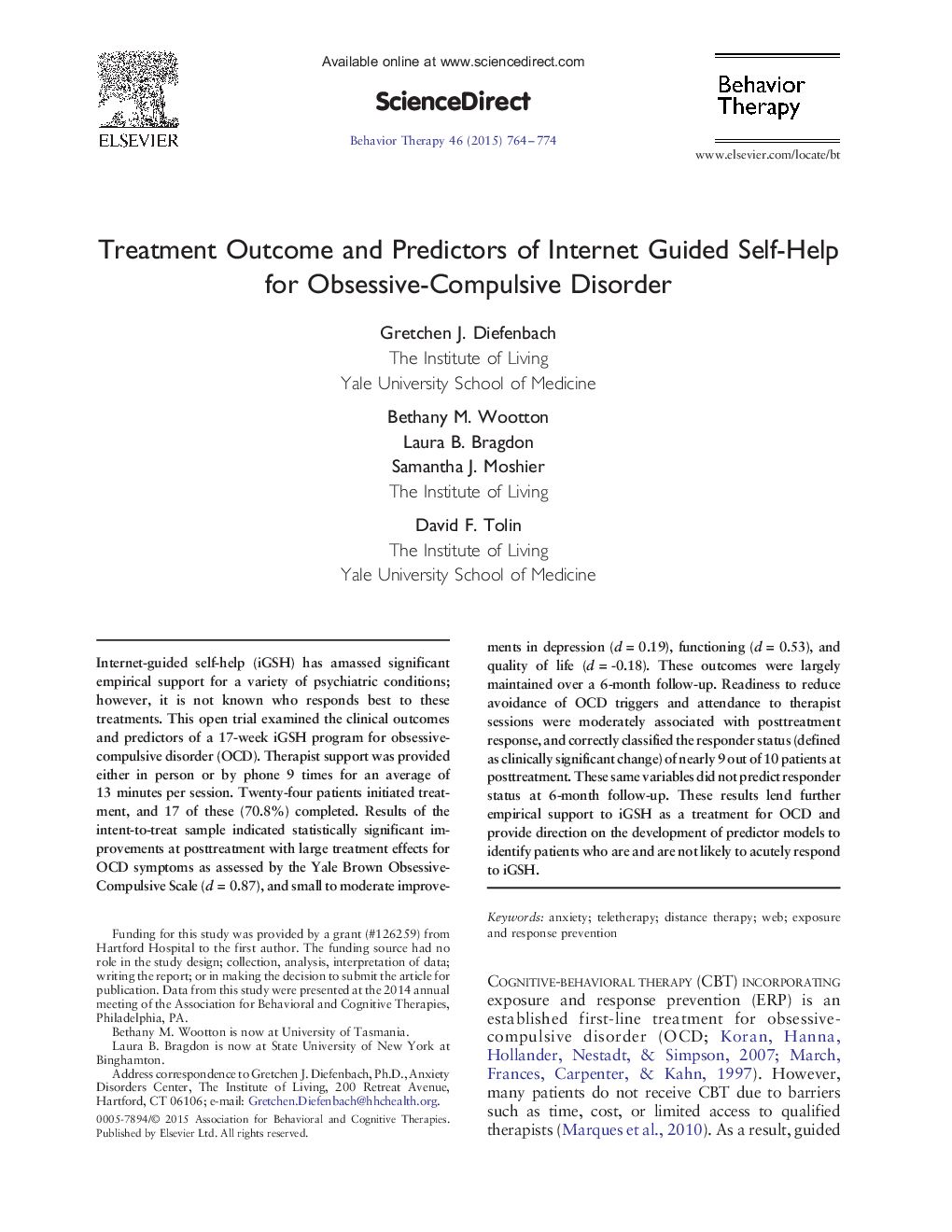| Article ID | Journal | Published Year | Pages | File Type |
|---|---|---|---|---|
| 901285 | Behavior Therapy | 2015 | 11 Pages |
•Obsessive-compulsive symptoms improved following Internet-guided self-help (iGSH).•Depression, functioning, and quality of life also improved following iGSH.•Higher motivation and attendance were associated with better treatment response.
Internet-guided self-help (iGSH) has amassed significant empirical support for a variety of psychiatric conditions; however, it is not known who responds best to these treatments. This open trial examined the clinical outcomes and predictors of a 17-week iGSH program for obsessive-compulsive disorder (OCD). Therapist support was provided either in person or by phone 9 times for an average of 13 minutes per session. Twenty-four patients initiated treatment, and 17 of these (70.8%) completed. Results of the intent-to-treat sample indicated statistically significant improvements at posttreatment with large treatment effects for OCD symptoms as assessed by the Yale Brown Obsessive-Compulsive Scale (d = 0.87), and small to moderate improvements in depression (d = 0.19), functioning (d = 0.53), and quality of life (d = -0.18). These outcomes were largely maintained over a 6-month follow-up. Readiness to reduce avoidance of OCD triggers and attendance to therapist sessions were moderately associated with posttreatment response, and correctly classified the responder status (defined as clinically significant change) of nearly 9 out of 10 patients at posttreatment. These same variables did not predict responder status at 6-month follow-up. These results lend further empirical support to iGSH as a treatment for OCD and provide direction on the development of predictor models to identify patients who are and are not likely to acutely respond to iGSH.
